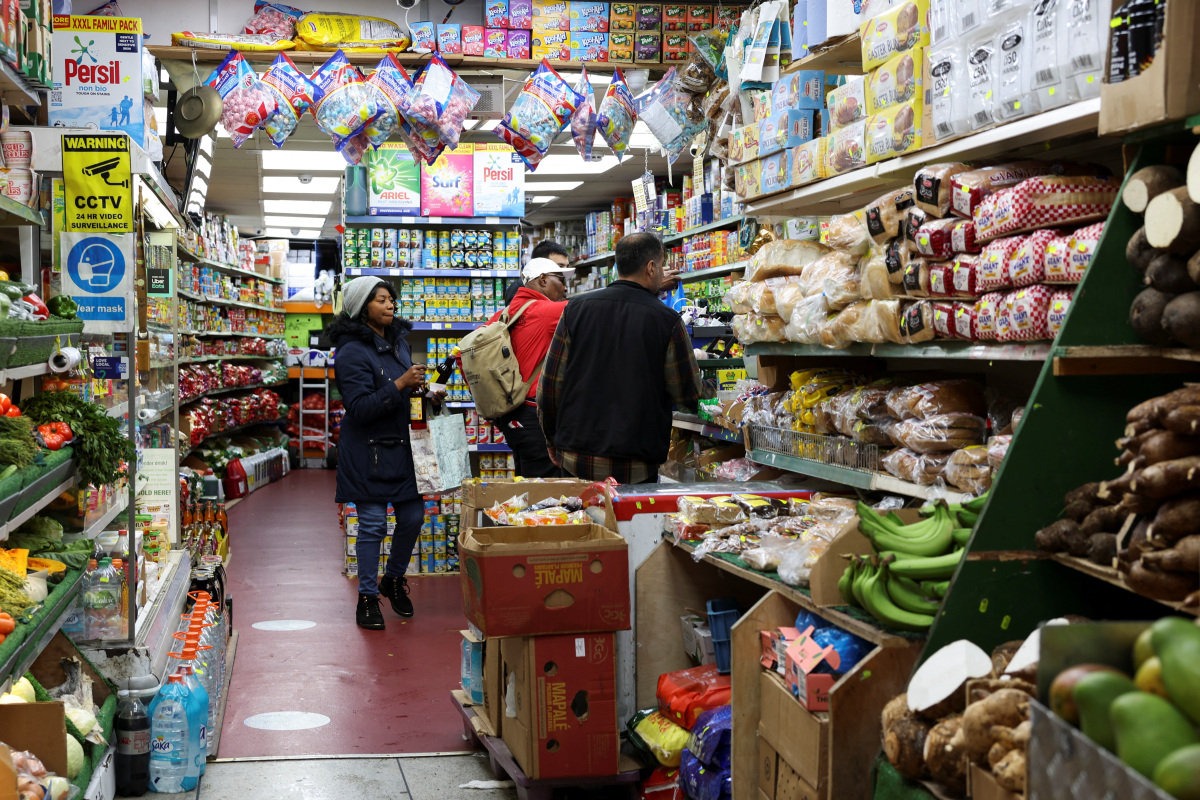In December, shop prices maintained their upward trajectory, rising by 4.3 per cent, as a surge in prices for non-food items offset a slight easing of costs on food.
The rate of increase in in-store prices compared to the same period last year remained consistent with the inflation rate observed in November, following several months of a gradual slowdown.
Retailers cautioned that the introduction of new border checks on EU goods entering the UK, scheduled to commence in April, could lead to further spikes in shopping costs for consumers.
Retailers and industry experts are closely monitoring the situation, with many attributing the sustained grocery inflation to a combination of factors.
Supply chain disruptions, increased operational costs and global economic challenges are among the key contributors, as the fallout from the COVID-19 pandemic continues to reverberate throughout the economy.
The recent easing of food price rises can be partially attributed to a temporary decrease in global commodity prices, such as those for wheat and soybeans. Wheat, corn and soybean prices rose in mid-summer 2023 but eased up in the latter months.
However, experts caution against viewing this as a long-term trend, given the volatility inherent in commodity markets.
Despite the slight relief in food price rises, grocery inflation has not followed suit, highlighting the complex dynamics at play within the retail sector.
Retailers, grappling with rising costs across various facets of their operations, are compelled to make strategic decisions to navigate these challenges while striving to maintain competitive pricing for consumers.
The potential for increased paperwork, delays in customs processes and additional logistical hurdles could result in higher costs for fresh food imports.
Retailers are expressing apprehension that these elevated costs may ultimately be passed on to consumers, compounding the challenges posed by the existing grocery inflation.
Industry leaders are calling for collaborative solutions, urging the government to work closely with retailers to mitigate the impact of post-Brexit checks on fresh food.
The British Retail Consortium (BRC) has been vocal in its appeal for a pragmatic approach to these checks to minimise disruptions and avoid exacerbating grocery inflation further.
Helen Dickinson, the CEO of the British Retail Consortium, the trade body representing most major retailers, has emphasised that despite their efforts to maintain affordability in 2024, there are challenges ahead.
These obstacles include the introduction of new border checks for EU imports and a substantial increase in business rates bills starting in April.
Dickinson urged the government to reconsider imposing additional costs on retail businesses, as such measures could impede essential investments in local communities and lead to higher prices for households already facing financial difficulties.
Analysts have also cautioned that the impending rise in the legal minimum wage, scheduled to take effect in April, will further exert pressure on prices.
According to Dickinson, non-food products faced a “challenging December”, with price inflation climbing to 3.1 per cent from 2.5 per cent in November. This increase was attributed to prices rebounding after Black Friday discounts and preceding the January sales.
In contrast, food price inflation eased to 6.7 per cent in December, marking the lowest level since June 2022 and a decrease from 7.7 per cent in November.
Contributing to this decline were reductions in the prices of wine, port and sherry before the Christmas period. Additionally, fresh food inflation dropped to 5.4 per cent in December, down from 6.7 per cent the previous month.
Despite widespread discounting on the high street as retailers sought to clear stocks of clothing following a mild autumn, the overall price hike persisted.
These trends indicate the complex dynamics at play in the retail sector, where external factors such as border checks, business rates and minimum wage increases are influencing pricing strategies and consumer costs.
Consumer groups are also closely monitoring the situation, expressing concerns about the potential strain on household budgets.
With inflationary pressures persisting, there is a growing emphasis on the importance of transparency in pricing and measures to support consumers through these economic challenges.
Retailers, policymakers and consumers alike remain engaged in ongoing discussions to find sustainable solutions that strike a balance between economic realities and the affordability of essential goods for British households.







